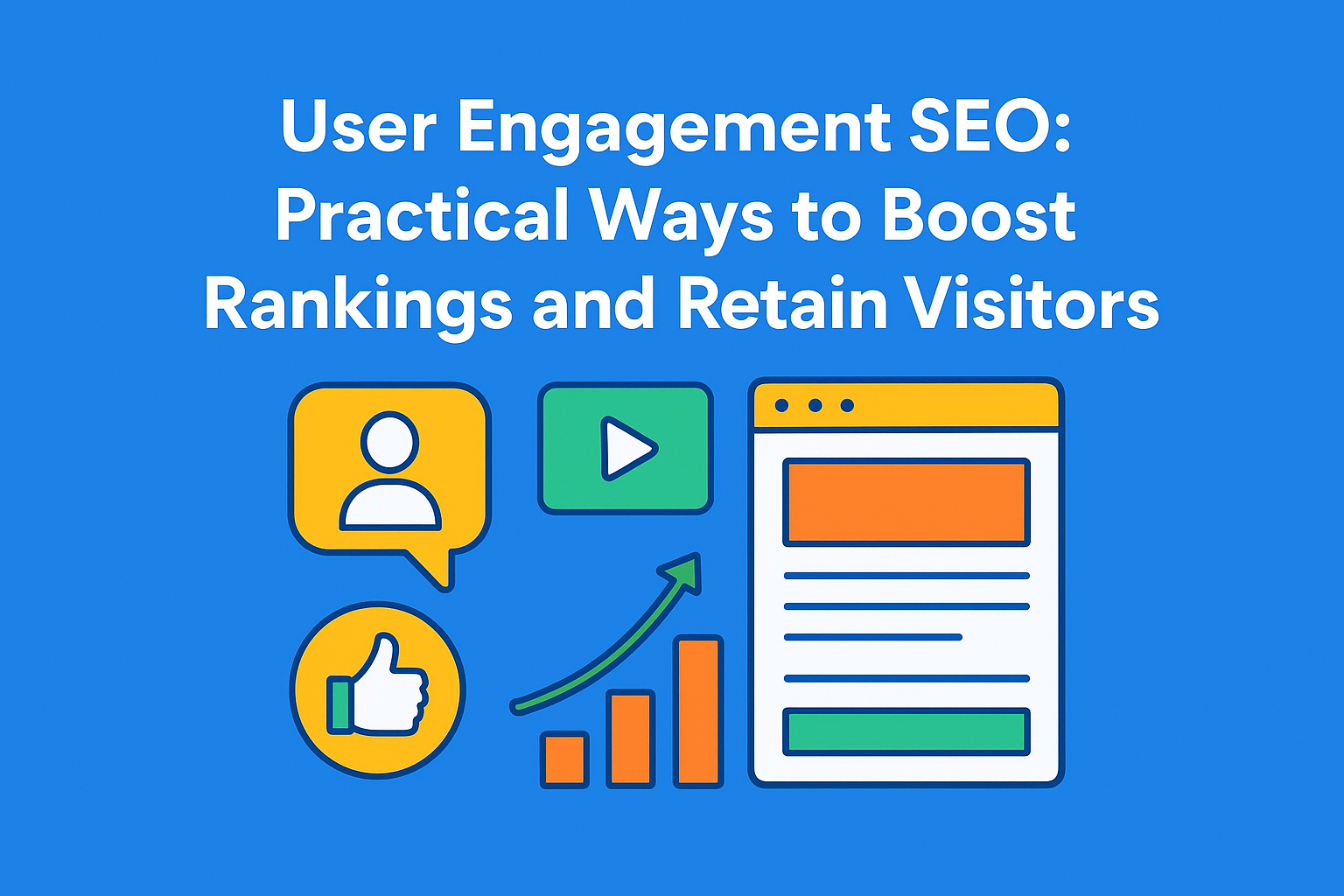By Janice Ramos
Getting found on Google is one thing—keeping visitors engaged once they land on your site is another. Today, search engines don’t just reward websites that attract traffic; they reward websites that deliver value, retain visitors, and encourage meaningful interactions. This is where User Engagement SEO comes into play. It’s not just about ranking higher—it’s about building an experience that turns clicks into long-term relationships and, ultimately, customers.

Why User Engagement Matters for SEO
Google’s algorithms have evolved. Rankings are no longer driven solely by keyword density and backlinks. Metrics such as bounce rate, dwell time, and pages per session play a growing role in determining whether your website deserves a top spot. In short: if people don’t engage with your content, search engines will notice.
That’s why User Engagement SEO is essential. It bridges the gap between visibility and conversion by aligning content, design, and strategy to keep prospects on your site longer and guide them toward action.
Practical Ways to Improve User Engagement SEO
1. Create Content That Speaks to Buyer Intent
Too many businesses publish generic blogs that get clicks but fail to convert. Instead, focus on creating content that aligns with your prospects’ pain points and goals. Answer the exact questions they’re asking at different stages of the funnel—educational posts for awareness, detailed comparisons for consideration, and case studies for decision-making. Content that delivers value increases time on site and builds trust.
2. Improve Website Speed and Mobile Experience
Nothing kills engagement faster than a slow, clunky website. With most users browsing on mobile, a site that takes more than a few seconds to load or isn’t mobile-friendly drives people away. Optimizing speed, responsive design, and intuitive navigation can drastically improve dwell time and reduce bounce rates, both of which positively influence User Engagement SEO.
3. Use Internal Linking to Guide the Journey
Internal links aren’t just for SEO—they’re for users. By strategically linking blogs to service pages, and case studies to contact forms, you can guide visitors through a natural path toward conversion. Done well, this keeps people clicking deeper into your site, signaling to Google that your content is worth ranking.
4. Add Interactive Elements
Static pages don’t cut it anymore. Incorporating videos, calculators, polls, or even downloadable resources can dramatically improve engagement. These elements not only capture attention but also encourage repeat visits and shares, strengthening your authority in the process.
5. Focus on Clear Calls-to-Action (CTAs)
A visitor shouldn’t have to guess what to do next. Every page should have a clear purpose—whether it’s reading a related blog, booking a consultation, or downloading a guide. Strong CTAs improve conversions, but they also keep people on your site longer, which is a win for User Engagement SEO.
6. Track and Refine Based on Analytics
Guessing is not a strategy. Leverage analytics to measure engagement metrics like time on page, scroll depth, and conversion rates. Identify what content performs best, and double down on it. This data-driven approach ensures your SEO efforts are tied to real business outcomes, not vanity metrics.
Turning Engagement Into Growth
At the end of the day, SEO isn’t just about driving more traffic—it’s about driving the right traffic and keeping those visitors engaged until they’re ready to become customers. By focusing on User Engagement SEO, businesses can rise above competitors who are still chasing rankings without delivering meaningful value.
Ready to transform your website into a lead-generating machine? At DoubleDome Digital Marketing, we specialize in User Engagement SEO strategies that don’t just increase visibility—they deliver measurable growth.








